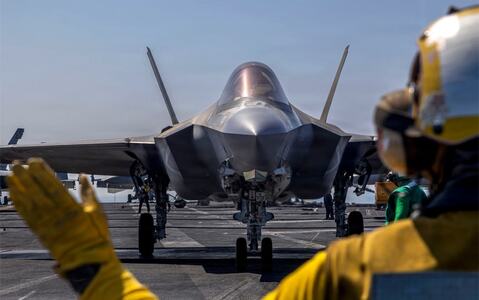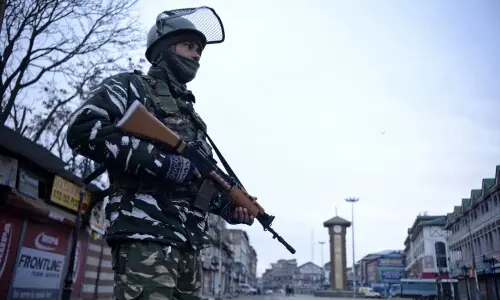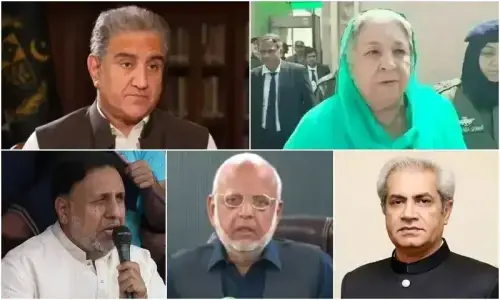MUNICH: World powers agreed on Friday to an ambitious plan to cease hostilities in war-torn Syria, but the Munich deal left out the militant Islamic State (IS) group and Al Qaeda’s local branch, raising questions over its viability.
The 17 countries agreed “to implement a nationwide cessation of hostilities to begin in a target of one week’s time,” said US Secretary of State John Kerry after extended talks co-hosted by Russian Foreign Minister Sergei Lavrov.
The International Syria Support Group also agreed that “sustained delivery” of aid would begin this week, with a new UN task force meeting soon in Geneva to start pushing for much greater access to “besieged and hard-to-reach areas”.
John Kerry says talks between govt and rebels will resume soon
The deal went further than expected, with Mr Lavrov talking about “direct contacts between the Russian and US military” on the ground. But Mr Kerry said they were under “no illusions” about the difficulty of implementing the agreement.
Analysts were sceptical the deal would stop the bloodshed.
“It is ambitious and yet very tenuous... there are huge question marks,” said Julien Barnes-Dacey, of the European Council on Foreign Relations.
He highlighted the fact that IS and Al Qaeda affiliate Al-Nusra would not be covered by the “cessation of hostilities”.
The failure to include Al-Nusra is important because the group is active in Aleppo and surrounding regions and many of the more “moderate” rebels have links with it, according to Barnes-Dacey.
“In many ways this Munich meeting was thrust to the fore by the situation in Aleppo, and yet the conditions of the agreement do not seem to apply to Aleppo,” he said.
A senior Russian foreign affairs official appeared to support the doubts, saying he was “not very optimistic” about a ceasefire.
“Despite the agreement, Russia will continue its anti-terrorist military operation,” Vladimir Djabarov, vice-president of Russia’s foreign affairs commission, told the TASS news agency.
“There are too many groups that claim they are anti-government or anti-Assad when many are clearly terrorist groups,” he said.
‘Words on paper’
Peace talks collapsed earlier this month after troops loyal to Syrian President Bashar al-Assad, backed by Russian bombers and Iranian fighters, launched a major offensive on the key rebel stronghold of Aleppo.
The bombardments have forced at least 50,000 people to flee, left the opposition virtually encircled and killed an estimated 500 people since they began on February 1 — the latest hellish twist in a war that has claimed more than a quarter-million lives.
Mr Kerry said talks between rebels and the regime would resume as soon as possible, but warned that “what we have here are words on paper — what we need to see in the next few days are actions on the ground”.
A UN task force, co-chaired by Russia and the US, will work over the coming week “to develop the modalities for a long-term, comprehensive and durable cessation of violence,” Mr Kerry said.
The separate aid task force will pressure the Syrian government to open routes, since only around a dozen of 116 UN access requests have been granted.
Russia and the US remain at odds on several issues, particularly the fate of President Assad.
Syria is a crucial ally and military staging post for Russia and Iran, while observers say Moscow has gained from the chaos created by the war, particularly the refugee crisis in Europe.
Washington, reluctant to involve itself in another complex war after the quagmires of Afghanistan and Iraq, has also faced criticism for not doing enough to help the rebels.
It has sought to focus more on combating IS men, who have taken over swathes of Syria and Iraq, than getting involved in the civil war between the regime and opposition forces.
The conflict has also strained relations between Turkey and its Western allies.
Published in Dawn, February 13th, 2016


































